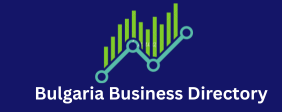For Microsoft, CSR means integrating responsible practices into the core of its innovation and operations. This includes reducing carbon emissions, advancing digital inclusion, ensuring ethical AI development, and upholding labor rights in its global supply chain. Rather than treating CSR as a standalone initiative, Microsoft weaves it into its mission to empower every person and organization on the planet to achieve more Microsoft Corporate Social .
<p>In today’s business environment, CSR has become a strategic imperative. Stakeholders ranging from investors to employees are demanding transparency, sustainability, and business ethics. Climate change, data privacy concerns, and social inequality are forcing companies like Microsoft to lead responsibly. With its extensive reach and technological capabilities, Microsoft’s approach to CSR not only reflects the company’s goodwill, but also provides a blueprint for responsible growth in the digital age.
Microsoft’s Approach to Corporate Social Responsibility
Microsoft’s approach to Corporate Social Responsibility (CSR) is anchored in its commitment to creating a more sustainable, inclusive, and trustworthy world. The company integrates CSR into its core mission and business strategy, recognizing that long-term success depends on responsible innovation and global stewardship.
CSR is not an add-on to Microsoft, but a core principle. The company’s values align with initiatives that advance digital equality, protect human rights, and accelerate sustainability.
This commitment is evident in Microsoft’s public goals around carbon neutrality, water positivity, malaysia telegram data and AI ethical framework.
Microsoft’s CSR strategy rests on four central pillars:
Microsoft demonstrates a strong commitment to environmental sustainability through comprehensive initiatives aimed at reducing its environmental footprint. The company’s environmental responsibility strategy focuses on carbon reduction, water conservation, waste minimization, os nossos serviços incluem and ecosystem protection.
Water positive
Recognizing the importance of water conservation with the goal of replenishing more water than it consumes.. Since the program began, Microsoft has contracted 61.7 million cubic meters of volumetric water replenishment benefits, which is equivalent to filling more than 24,000 Olympic-sized swimming pools.
Protection of ecosystems
Microsoft aims to protect more land than it uses by 2025. In fiscal year 2023, the company protected a total of 15,849 acres of land, exceeding its land protection goal of 11,000 acres by more than 40 percent. This area is equivalent to more than 9,000 football fields.
Ad
dressing the Environmental Impact of Data Centers
As Microsoft expands its data center operations to support growing cloud and AI services, the company is addressing the associated environmental impacts. In September 2024, Microsoft announced a energy-intensive data centers. Additionally, Microsoft is exploring the use of nuclear energy to power its data centers, china numbers including plans to use power from a refurbished unit of the Three Mile Island nuclear power plant by 2028.
With these initiatives, Microsoft aims to lead by example in environmental responsibility by integrating sustainable practices into its operations and encouraging customers to help create a more sustainable future.
Microsoft’s Ethical Business Practices
Microsoft is committed to conducting business with integrity, transparency, and respect for human rights. The company’s ethical framework includes fair labor standards, supply chain ethics, transparency and governance, and anti-corruption policies.
Fair labor standards
Microsoft upholds fair labor practices within its workforce and supply chain. The company has implemented programs to ensure that employees receive fair wages, work in safe conditions, and are treated with respect. Microsoft’s Standards of Business Conduct emphasize the importance of maintaining a commitment to high ethical standards and conducting business with integrity.
purchasing practices to its products and services, and works with suppliers to promote social responsibility and environmental stewardship.
Transparency and governance
Microsoft maintains a comprehensive Business Ethics and Compliance program designed to uphold legal and ethical standards throughout its operations. This program advises leaders on ethical business practices, manages legal risks, and encourages employees to raise concerns. The company’s Standards of Business Conduct outline expectations for ethical behavior and compliance with company policies.
Anti-corruption policy
Microsoft’s anti-corruption policy is embedded in the broader ethical framework. The company sets high ethical standards and expects every employee to adhere to those standards and to comply with the law and company policies. Microsoft’s business practices and standards reflect its commitment to making a positive impact around the world.
Despite these initiatives, Microsoft has received criticism for its ethical practices. Concerns have been raised about labor rights, human rights, and supply chain management. For example, some reports have highlighted issues related to employee rights and political activities. These criticisms indicate areas where the company may need to improve its ethical standards and practices.
Overall, Microsoft demonstrates a commitment to ethical business practices through various programs and policies. However, ongoing monitoring suggests that continuous improvement and transparency are necessary to address concerns and maintain stakeholder trust.
Microsoft’s Philanthropy and Community Involvement
Microsoft demonstrates a deep commitment to philanthropy and community involvement through various initiatives that support local communities, promote volunteerism, and address social issues.
Employees donate and volunteer
Microsoft’s culture encourages employees to invest their time, money, and skills to address global challenges. Over the past 50 years, Microsoft and its employees have in Washington State alone, including $114.2 million in the past year. In 2023, employees globally donated $250 million (including company match) to more than 35,000 nonprofits, and nearly 50,000 employees have volunteered more than 1 million hours. The company matches employee donations dollar for dollar, and donates a set amount per hour each year for volunteer time.

